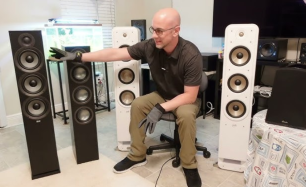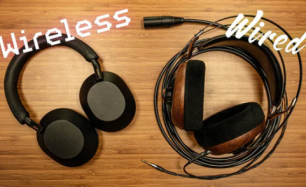Noise-Canceling vs. Noise-Isolating: What’s the Difference?
When shopping for headphones, you may come across two terms: noise-canceling and noise-isolating. While both technologies aim to reduce unwanted background noise, they work in different ways. Understanding these differences can help you decide which type is best suited for your needs.

1. Noise-Canceling Headphones
Noise-canceling headphones use active noise control (ANC) technology to eliminate external sounds. They generate sound waves that counteract ambient noise, providing a quieter listening experience.
Pros:
- Blocks out external noise effectively, especially low-frequency sounds like airplane engines and traffic.
- Ideal for travel, work, and studying in noisy environments.
- Enhances audio clarity by reducing distractions.
Cons:
- Requires battery power, as the ANC feature needs energy to function.
- Slightly higher cost due to advanced technology.
- May introduce a slight pressure sensation in some users due to active noise cancellation.
Recommended Product from AudioNest: Wireless Noise-Canceling Headphones
Experience crystal-clear sound with cutting-edge ANC technology.

2. Noise-Isolating Headphones
Noise-isolating headphones, also known as passive noise isolation, work by physically blocking outside sounds. They use snug-fitting ear pads or in-ear tips to reduce ambient noise naturally.
Pros:
- Does not require battery power, as it relies on the design and fit.
- Typically more affordable than active noise-canceling models.
- Preserves sound quality by reducing external interference without altering the audio signal.
Cons:
- Less effective in loud environments, as it relies solely on physical barriers.
- Fit-dependent effectiveness, meaning poorly fitting headphones may not isolate sound efficiently.
Which Option Is Best for You?
- Choose Noise-Canceling Headphones if you frequently travel, work in loud environments, or need complete focus.
- Choose Noise-Isolating Headphones if you want a budget-friendly option with natural noise reduction.
Both technologies offer great benefits, so the best choice depends on your lifestyle and listening preferences.








